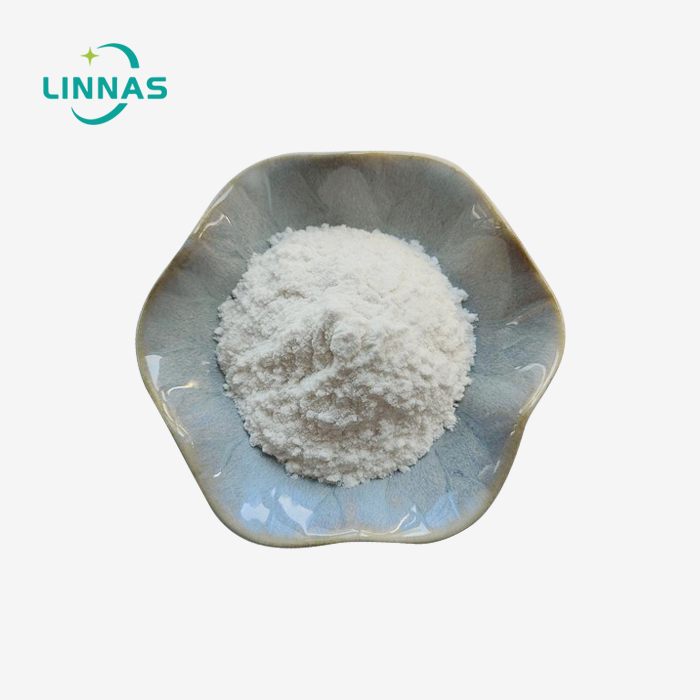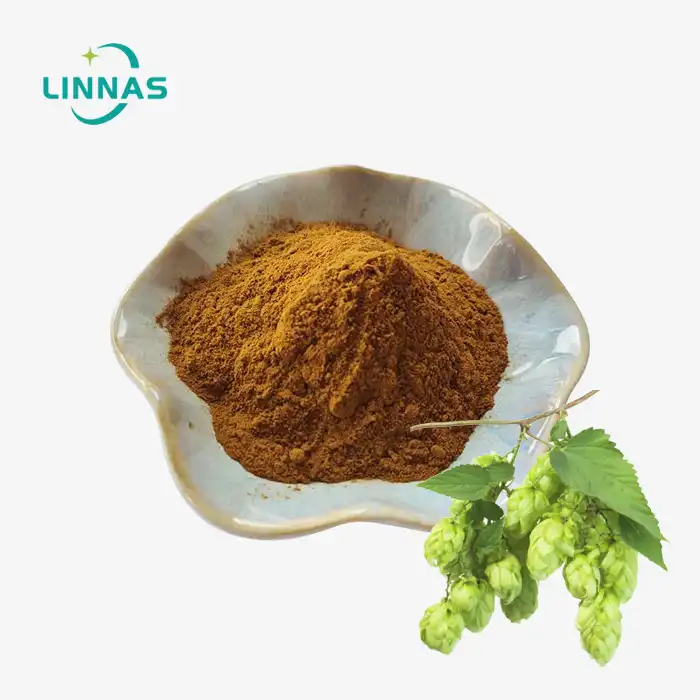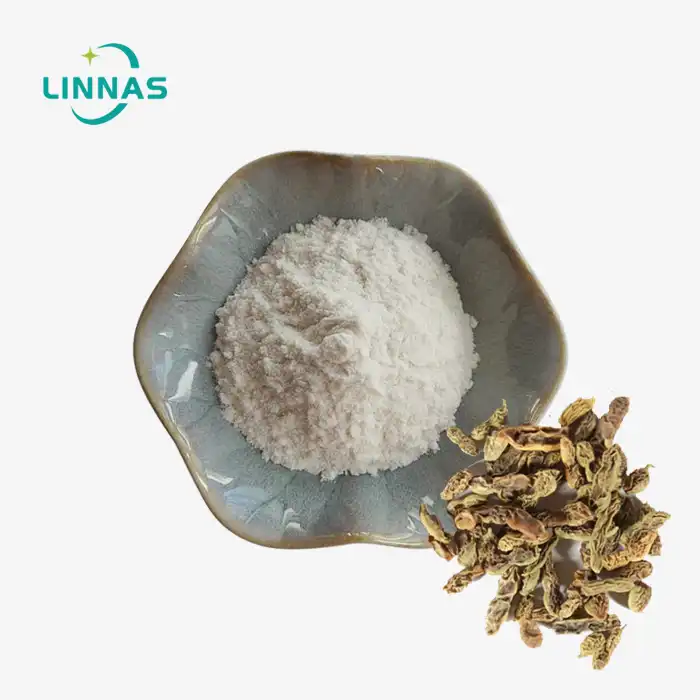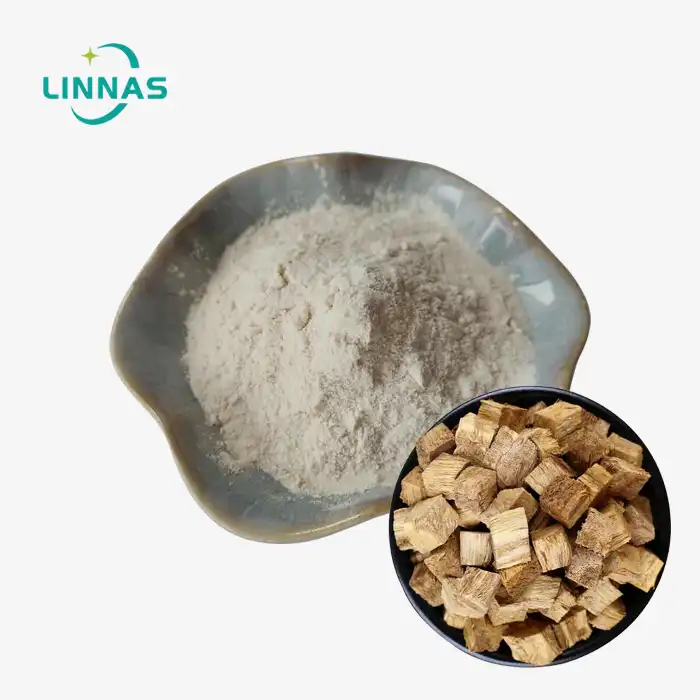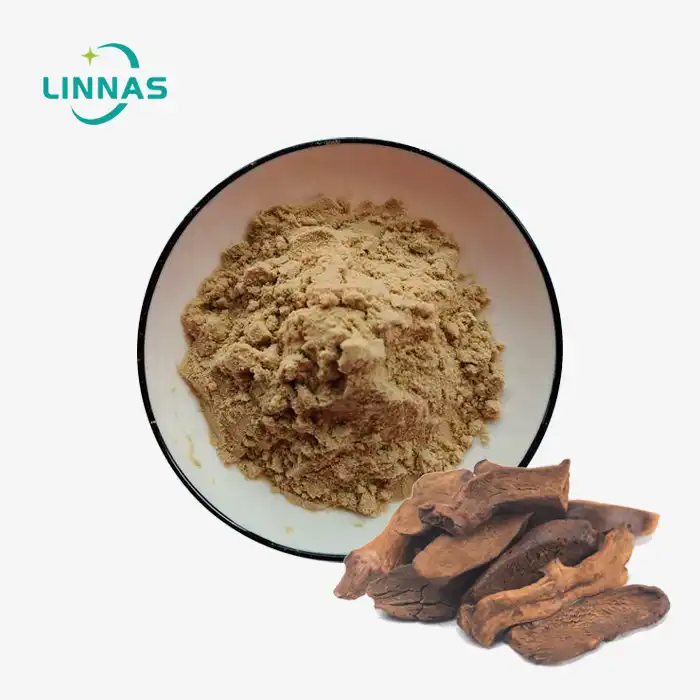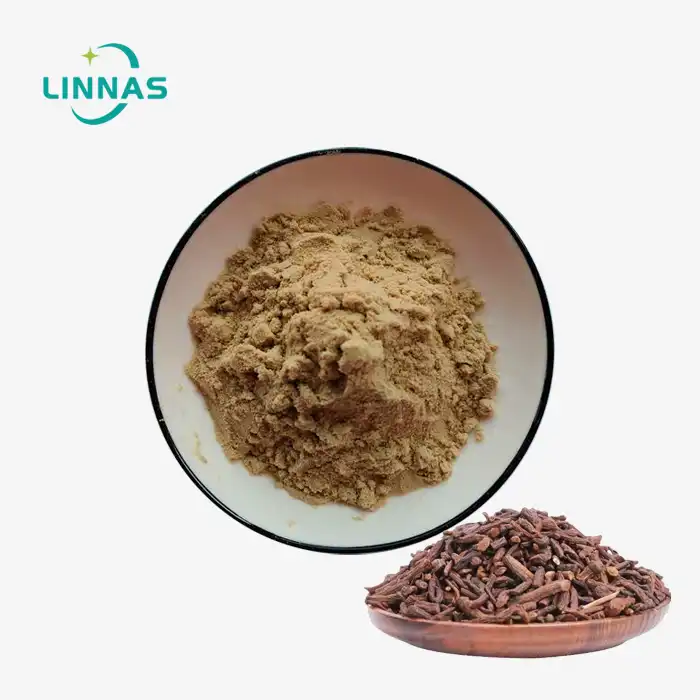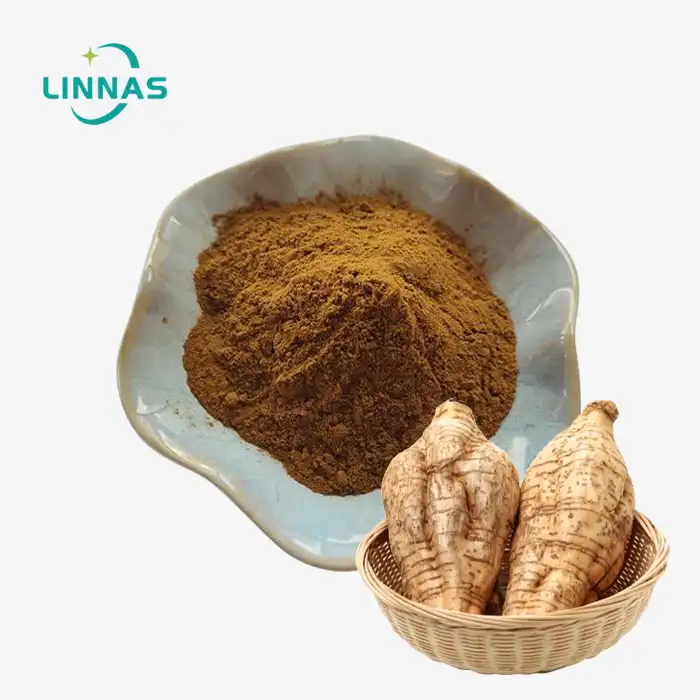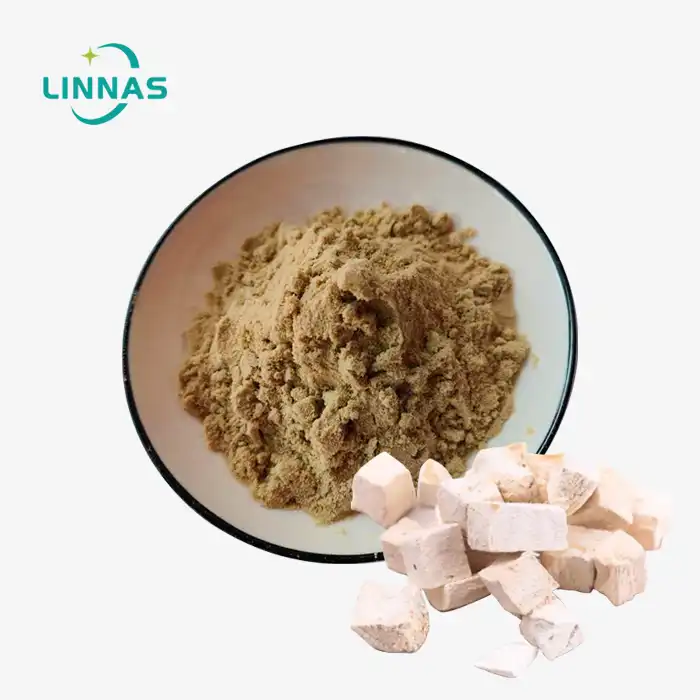As pet owners, we're continuously on the lookout for ways to boost our textured friends' wellbeing and well-being. One supplement that has picked up ubiquity in recent years is spirulina powder. But can mutts eat spirulina powder safely? Let's plunge into this nutrient-rich superfood and investigate its potential benefits and contemplations for our canine companions.
What is Spirulina Powder and Why is it Considered a Superfood?
 Spirulina powder is a nutrient-dense supplement derived from blue-green green algae. It's known for its noteworthy dietary profile and potential wellbeing benefits for people. This dark green powder boasts a high protein substance, ordinarily extending from 60-70%, making it a great source of plant-based protein.
Spirulina powder is a nutrient-dense supplement derived from blue-green green algae. It's known for its noteworthy dietary profile and potential wellbeing benefits for people. This dark green powder boasts a high protein substance, ordinarily extending from 60-70%, making it a great source of plant-based protein.
The exceptional nutritional value of spirulina powder includes:
- Essential vitamins and minerals, including vitamin B12, iron, and magnesium
- Powerful antioxidants, particularly phycocyanin
- All essential amino acids
- Omega-3 fatty acids
With its rich nutrient composition, spirulina powder has earned its reputation as a superfood. But how does this translate to canine health?
The Nutritional Powerhouse: Breaking Down Spirulina's Components
To understand why spirulina powder is considered beneficial for dogs, let's examine its key components:
- Protein: Spirulina contains 60-70% protein, offering a concentrated source of fundamental amino acids. These amino acids are imperative for keeping up muscle mass and overall wellbeing in mutts, helping to bolster their development and repair forms.
- Antioxidants: Spirulina is packed with capable antioxidants, particularly phycocyanin. This antioxidant may help decrease oxidative stress in mutts, possibly protecting their cells from harm and supporting a solid immune framework to battle off illnesses.
- Vitamins and Minerals: Spirulina is a nutrient-dense superfood that gives a wide range of vitamins and minerals, including B-complex vitamins, press, and magnesium. These supplements play key parts in different substantial capacities in mutts, supporting everything from vitality generation to bone health.
- Omega-3 Fatty Acids: Spirulina is also rich in omega-3 fatty acids, which are basic for your dog's skin and coat wellbeing. These fatty acids help keep up a sparkly coat, diminish aggravation, and back in general well-being by advancing sound skin.
The Potential Benefits of Spirulina Powder for Dogs
While research on spirulina's effects specifically in dogs is limited, many of its potential benefits for humans may extend to our canine friends. Here are some ways spirulina powder might benefit your dog:
Immune System Support
The high concentration of antioxidants in spirulina powder, especially phycocyanin, may help boost your dog's resistant framework. A strong resistant reaction can help your furry companion battle off diseases and recoup more rapidly from ailments.
Improved Skin and Coat Health
The omega-3 fatty acids and antioxidants in spirulina powder may contribute to healthier skin and a shinier coat for your dog. These nutrients can help reduce inflammation and support overall skin health.
Detoxification Support
Spirulina has been related to detoxification properties in people, and it may offer comparative benefits for pooches. It seems it possibly helps bolster your dog's characteristic detoxification forms, supporting in the end the elimination of poisons and overwhelming metals.
Energy Boost
Spirulina powder is nutrient-dense, packed with high-quality protein, vitamins, and minerals. This powerful combination may help boost your dog’s energy levels, reduce fatigue, and support overall vitality, contributing to better health and active lifestyles. Its rich nutrient profile aids in sustaining energy throughout the day and promoting general well-being.
How to Safely Introduce Spirulina Powder to Your Dog's Diet?
If you're considering adding spirulina powder to your dog's diet, it's crucial to do so safely and under the guidance of a veterinarian. Here are some tips for introducing this superfood to your canine companion:
Consult Your Veterinarian
Before including any modern supplement to your dog's diet, continuously counsel with your veterinarian. They can give personalized counsel based on your dog's particular wellbeing needs and potential intuitive with any medicines.
Start with Small Amounts
Begin by introducing tiny amounts of spirulina powder to your dog's food. This allows you to monitor for any adverse reactions and helps your dog adjust to the new taste and texture.
Choose High-Quality Spirulina Powder
When selecting spirulina powder for your dog, opt for high-quality products that are specifically formulated for pets or certified for human consumption. Look for products with certifications such as ISO, HACCP, HALAL, and KOSHER to ensure quality and safety.
Monitor Your Dog's Response
Observe your dog closely after introducing spirulina powder. Watch for any signs of digestive upset, allergic reactions, or changes in behavior. If you notice any concerning symptoms, discontinue use and consult your veterinarian.
While spirulina powder offers potential health benefits for dogs, it's essential to remember that every dog is unique. What works well for one may not be suitable for another. Always prioritize your dog's individual needs and consult with professionals when making dietary changes.
Conclusion
In conclusion, the best spirulina powder can be a valuable addition to your dog's diet when used appropriately. Its rich nutritional profile and potential health benefits make it an intriguing option for pet owners looking to support their dog's overall well-being. However, as with any supplement, moderation and professional guidance are key.
If you're interested in learning more about natural plant extracts and their potential benefits for pets, we welcome you to contact us at cathy@linnas.com.cn. Our team at Xi'an Linnas Biotech Co., Ltd. is dedicated to providing high-quality, natural products backed by rigorous quality control and certifications.
References
1. Belay, A. (2002). The potential application of Spirulina (Arthrospira) as a nutritional and therapeutic supplement in health management. Journal of the American Nutraceutical Association, 5(2), 27-48.
2. Deng, R., & Chow, T. J. (2010). Hypolipidemic, antioxidant, and antiinflammatory activities of microalgae Spirulina. Cardiovascular therapeutics, 28(4), e33-e45.
3. Finamore, A., Palmery, M., Bensehaila, S., & Peluso, I. (2017). Antioxidant, immunomodulating, and microbial-modulating activities of the sustainable and ecofriendly spirulina. Oxidative medicine and cellular longevity, 2017.
4. Karkos, P. D., Leong, S. C., Karkos, C. D., Sivaji, N., & Assimakopoulos, D. A. (2011). Spirulina in clinical practice: evidence-based human applications. Evidence-based complementary and alternative medicine, 2011.
5. Wu, Q., Liu, L., Miron, A., Klímová, B., Wan, D., & Kuča, K. (2016). The antioxidant, immunomodulatory, and anti-inflammatory activities of Spirulina: an overview. Archives of toxicology, 90(8), 1817-1840.



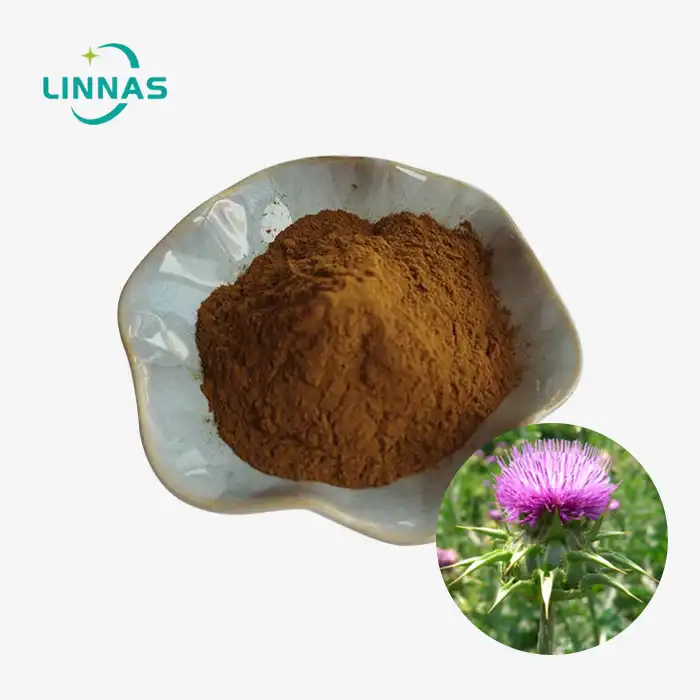
_1735099214534.webp)
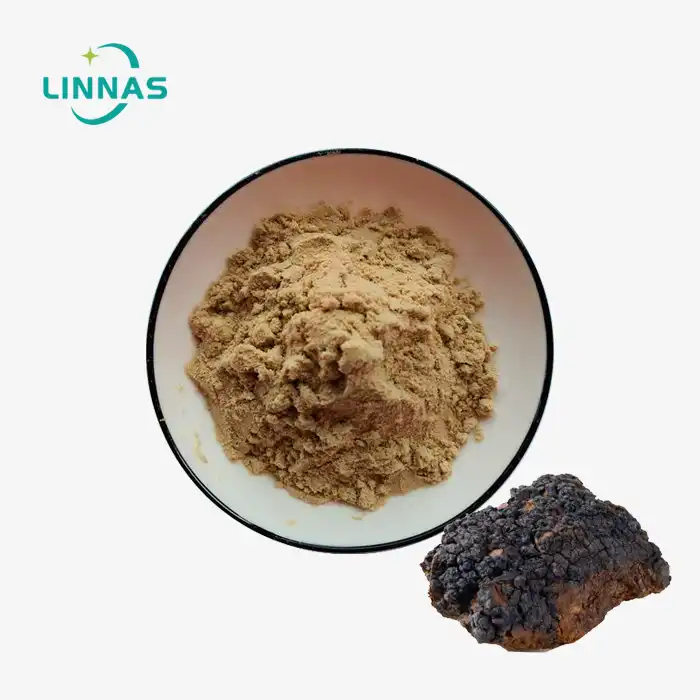
 Spirulina powder is a nutrient-dense supplement derived from blue-green green algae. It's known for its noteworthy dietary profile and potential wellbeing benefits for people. This dark green powder boasts a high protein substance, ordinarily extending from 60-70%, making it a great source of plant-based protein.
Spirulina powder is a nutrient-dense supplement derived from blue-green green algae. It's known for its noteworthy dietary profile and potential wellbeing benefits for people. This dark green powder boasts a high protein substance, ordinarily extending from 60-70%, making it a great source of plant-based protein.
